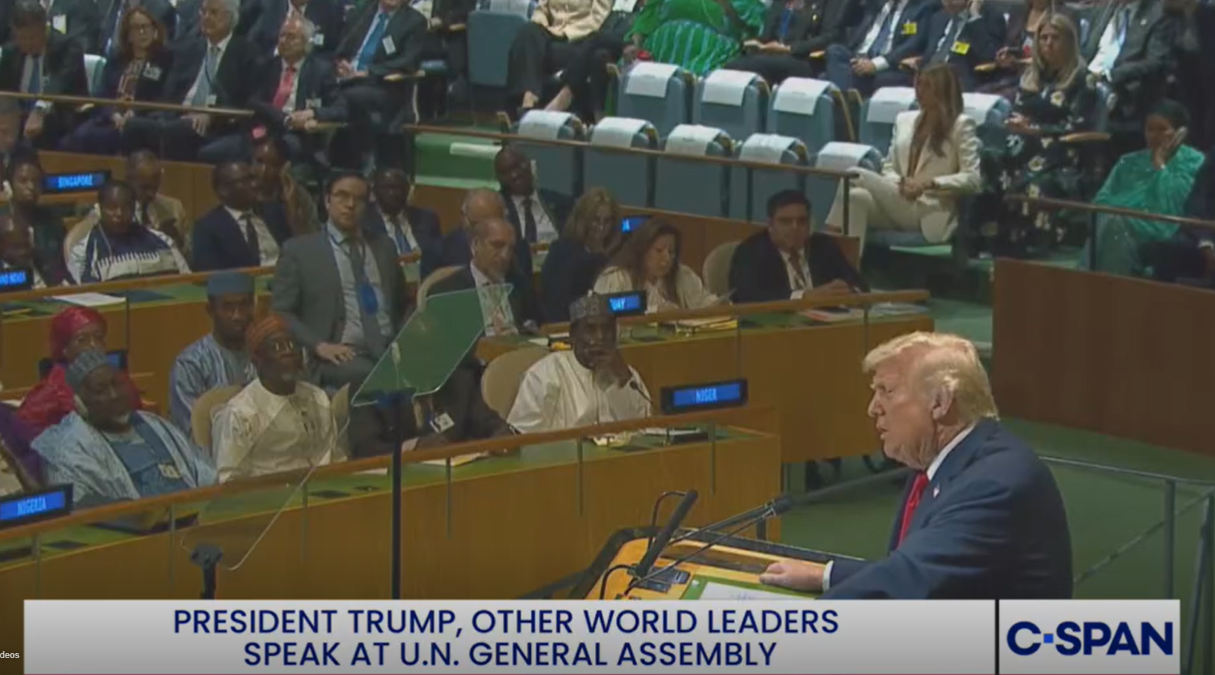In a speech delivered to the United Nations General Assembly on September 23, 2025, former President Donald Trump criticized the U.N. for failing to fulfill its mission of maintaining international peace and security. He claimed to have brokered the end of seven wars during his presidency, asserting that these efforts were made without assistance from the U.N.
Explainer As A Former DC Cop, The Federal Takeover Was The Right Move
The United Nations, established in 1945, aims to address global issues, including conflict resolution and humanitarian efforts. However, Trump argued that the organization has strayed from its core objectives, similar to NATO's perceived shortcomings.
"No president or prime minister, and for that matter, no other country has ever done anything close to that," Trump stated, referring to his diplomatic efforts in regions such as Cambodia, Thailand, Kosovo, Serbia, the Congo, Rwanda, Armenia, Azerbaijan, Pakistan, India, Israel, Iran, Egypt, and Ethiopia.
No president or prime minister, and for that matter, no other country has ever done anything close to that,
Despite acknowledging that the peace achieved in some cases remains fragile, Trump emphasized the importance of initiating dialogue to prevent further violence. He expressed disappointment that the U.N. did not offer support during these negotiations, questioning the organization's relevance: "What is the purpose of the United Nations?"
What is the purpose of the United Nations?
Trump highlighted the U.N.'s involvement in migration efforts, which he claimed are destabilizing host countries in Europe and the United States. He criticized the organization's tendency to issue statements without taking meaningful action, stating, "All they seem to do is write a really strongly worded letter and then never follow that letter up. It’s empty words, and empty words don’t solve war."
The former president also referenced the Abraham Accords, which aimed to foster peace in the Middle East, asserting that the U.S. received little recognition for this achievement. He remarked, "For me, the real prize will be the sons and daughters who live to grow up with their mothers and fathers, because millions of people are no longer being killed in endless and inglorious wars."
Trump urged the General Assembly to take action regarding ongoing conflicts, particularly the situation between Hamas and Israel. He condemned Hamas for its refusal to release hostages and called for a unified message from nations seeking peace: "release the hostages now. Just release the hostages."
In discussing the Russia-Ukraine conflict, Trump criticized both China and India for continuing to purchase Russian oil, suggesting that even NATO countries have not sufficiently cut off Russian energy supplies. He stated, "They’re funding the war against themselves. Who the hell ever heard of that one?"
Trump proposed that if a resolution to the conflict is not reached, the U.S. is prepared to impose tariffs that could halt the violence. He emphasized that European nations would need to adopt similar measures to be effective.
The speech received applause from the audience, particularly when Trump called for the release of hostages held by Hamas. His remarks reflect a broader critique of international organizations and their effectiveness in addressing global conflicts.
As the debate over the U.N.'s role continues, Trump's comments may resonate with critics who argue that the organization has not lived up to its founding principles. Supporters of the U.N., however, contend that it plays a vital role in facilitating dialogue and cooperation among nations.
Why it matters
- Trump's speech critiques the U.N.'s effectiveness in maintaining peace, questioning its relevance in global conflict resolution.
- He highlights his own diplomatic achievements, claiming to have ended seven wars without U.N. support, challenging the organization's role.
- Trump's remarks on the Israel-Hamas conflict and the Russia-Ukraine situation underscore ongoing global tensions and the need for decisive action.
- The speech reflects a growing skepticism towards international organizations, resonating with critics of the U.N.'s performance since its inception.
What’s next
- Calls for a unified international response to the Israel-Hamas conflict, particularly regarding hostage release.
- Potential discussions in the U.N. about reforming its approach to conflict resolution and humanitarian efforts.
- Monitoring of U.S. tariffs on Russian oil as a measure to influence the Russia-Ukraine conflict.

